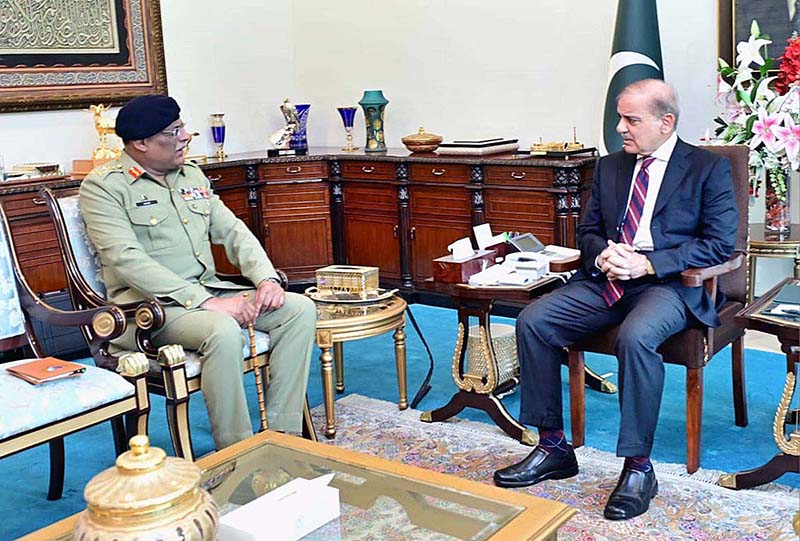Prime Minister Shehbaz Sharif met outgoing Chairman Joint Chiefs of Staff Committee General Sahir Shamshad Mirza on Monday. The meeting, titled Farewell Meeting Between PM Shehbaz and General Sahir Shamshad Mirza Marks End of CJCSC Role, highlighted the general’s long service, leadership, and strong contribution to Pakistan’s national security.
PM Shehbaz acknowledged General Mirza’s role in strengthening coordination among the Pakistan Army, Pakistan Air Force, and Pakistan Navy. He praised the general’s professionalism and dedication to national defense. The Prime Minister’s Office noted that the general played an important part in improving joint military strategy and counterterrorism coordination.
General Sahir Shamshad Mirza will retire on November 27 after completing his term as the 18th and final CJCSC. Searches for “General Sahir Shamshad Mirza retirement”, “CJCSC structure”, and “Pakistan military leadership change” are trending today, making this meeting highly relevant for political and defense news readers.
End of a Historic Position in Pakistan’s Military Command
Under the 27th Constitutional Amendment, Pakistan will no longer appoint a Chairman Joint Chiefs of Staff Committee after General Mirza steps down. This decision marks the end of a position created in 1976. General Mohammad Sharif became the first CJCSC under Prime Minister Zulfikar Ali Bhutto.
Read More: PM Shehbaz Calls for Global Experts to Boost Pakistan Railways and Regional Connectivity
The post remained dominated by the Pakistan Army for most of its history. Only three officers from other services held the role. These included Admiral Mohammad Sharif, Admiral Iftikhar Ahmed Sirohey, and Air Chief Marshal Farooq Feroze Khan. This historical context is now trending in defense news because of the position’s abolition.
General Mirza Concludes a Strategic Era
General Mirza previously warned that unresolved disputes in South Asia could escalate quickly. His retirement concludes nearly five decades of tradition in Pakistan’s military command. His departure also draws public attention as searches rise for “South Asia security”, “Pakistan defense policy”, and “regional tensions”.

